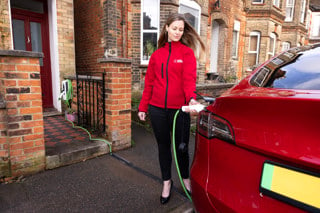Cycle to Work guidance has been updated to include e-bikes in an effort to help more commuters to make greener journeys.
E-bikes have an integrated motor that helps a cyclist pedal, allowing them to reach speeds of up to 15.5 mph in the UK.
The refreshed guidance will make it easier for employers to provide bicycles and equipment including e-bikes worth over £1,000, by making it clear that FCA authorised third-party providers are able to run the scheme on their behalf, says the Government.
Cycling minister Michael Ellis said: “Cycling is a vital and easy way to improve air quality, reduce pollution and create vibrant towns and cities.
“Making sure that bikes are easily available is crucial to helping more people make the switch to greener modes of transport. Ensuring people of all abilities and fitness levels can cycle together is a key part of this.
“I want everyone to feel empowered to make cycling a part of their everyday lives, and our refreshed guidance provides many incentives to help people do this.”
First introduced by the Government 20 years ago, Cycle to Work schemes promote cleaner, healthier journeys to and from work by allowing employees to save money on a new bike or accessories via a salary sacrifice scheme.
The Cycle to Work Alliance, in collaboration with senior transport, environment and health leaders, has welcomed the Government’s update to the Cycle to Work Scheme guidance.
Not only will the new guidance bring significantly increased health and wellbeing benefits, it will also further reduce the number of cars on the road and improve air quality, it said.
Chair of the Cycle to Work Alliance, Adrian Warren, said: “Cycling to work has extraordinary benefits for the environment, our health and wellbeing, and employer-employee relations, and today’s publication represents a significant step forward in getting more people physically active as part of the government’s ambitions to double cycling activity by 2025.
"The new guidance will also enable more people than ever to participate in cycle to work, including disabled people, people who live further away from work, older workers and those on lower incomes.
“We look forward to continuing to work with the government to ensure awareness of the Scheme is maximised to all.”





















Login to comment
Comments
No comments have been made yet.